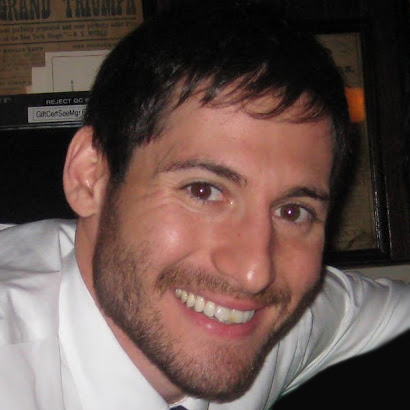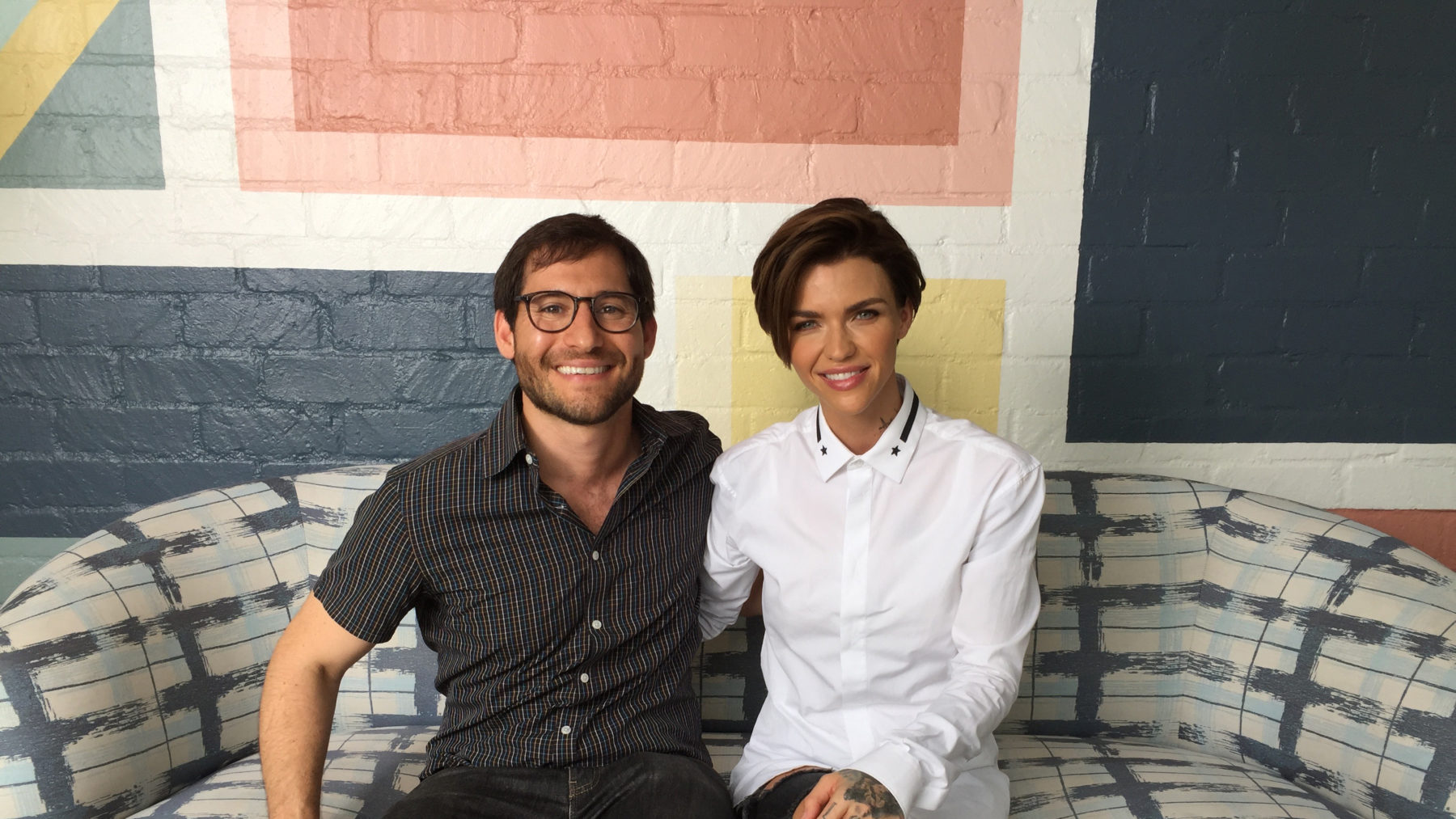From Exec To Staff Writer: An Interview With Todd Waldman
By Chelsea Fernando and Nora Canby
 As a development executive at Norman Lear’s ACT III and Jason Reitman’s Hard C, Todd Waldman scouted up-and-coming writing talent, a skill that would prove useful when he jumped the fence in 2012 and became a staff writer himself. Since then Todd has worked on brand-name shows ranging from “Happy Endings” to “Awkward”. As well, he’s developed pilots at Fox, Warner Brothers, and MTV, and sold a feature screenplay, “Beat Kip,” to Paramount Village.
As a development executive at Norman Lear’s ACT III and Jason Reitman’s Hard C, Todd Waldman scouted up-and-coming writing talent, a skill that would prove useful when he jumped the fence in 2012 and became a staff writer himself. Since then Todd has worked on brand-name shows ranging from “Happy Endings” to “Awkward”. As well, he’s developed pilots at Fox, Warner Brothers, and MTV, and sold a feature screenplay, “Beat Kip,” to Paramount Village.
Todd will be sharing his tricks of the trade in his 5-week TV Comedy 1 Class, beginning June 4th in Los Angeles, and his 5-week TV Comedy 3, beginning June 3rd. We sat down with Todd to chat about his writing career as well as to gain some insight into the mind of a TV executive.
1. What separates a good script from a great script?
Short answer: A voice.
Finding it can take years but when it clicks that’s the jump from from good to great. Voice is distinct with specific dialogue and very unique characters. And it feels effortless. That’s the magic in “great” scripts I’ve read. They make it seem easy.
A “good script” is read in piecemeal over a day. GREAT scripts grab you from page 1, hold your attention throughout, and are finished in one sitting. When someone has a voice, it screams off the page and sticks to your ribs. You’re emailing friends saying, “I just read something so cool and I’m so jealous right now.”
2. What are some mistakes that beginning writers make in their scripts?
Overwriting. Expressing something in five lines instead of two. Ending scenes with a period and not a comma. Lazy prose.
3. How did you land your first TV writing position?
I’d been writing and directing a comedy troupe of USC grads called “Summer of Tears.” We had success with our live shows and videos and got invited to perform at the U.S. Comedy Arts festival in Aspen Colorado. At this show, we won “Best Sketch Troupe” and when we got back to LA everything changed for us overnight. People started calling our agents and wanted to sit down with us. I still worked a day job as an exec so I was sneaking out to take all these meetings. It was pretty wild! We were fortunate enough to sit with Peter Roth at Warner Brothers and secured a pilot presentation deal to make a “Summer of Tears” show. It was sort of like a “Workaholics” before “Workaholics,” but not as funny because we weren’t ready yet. That was my first paying gig.
A few years later, off of the strength of this pilot, and some of our SOT sketches my partner and I were hired as staff writers on a midseason show called “Happy Endings.”
4. Could you talk about some of the differences you’ve encountered in the various writers’ rooms you’ve worked in?
Best (and simplest) advice I’ve gotten: “Every writer’s room is different.” Happy Endings was a deeply joke intensive room. The currency was one liners, plays on words, or sharp cultural satire. When I first started, I felt like I was moving in slow motion, everyone was so damn quick in that room. It really challenged me to become a joke machine and pitch in high volume. Once I got it down, I loved that speed and would regularly volunteer to head up joke rooms. Now, Awkward was a totally different experience. That show had a poetry to the dialogue and a realness to the characters and was not as concerned with jokes per page. Our show runner would work with the room to hash out a theme for every episode, a drive for each act, and an arc for the entire season. Manhattan Love Story was probably a great balance of the two. A serialized love story with really hard jokes per page. But each show runner, each room, all had different strengths and weaknesses that I learned from. It’s important to never say, “This is how things should be done in a room” because every room is different. Just adapt, and pitch, pitch, pitch!
5. Do you have a writing routine? Do you have a special place where you write and do you set it up a certain way to make it inspiring?
It varies, but I like going to this coffee shop Insomnia on Melrose. For a long time they didn’t have the Internet so I was very productive there. It’s got a great history, the creators of Friends used to go there and (no joke) the original title of the pilot of Friends was “Insomnia cafe.” Over the years, the writers of The Hunger Games, American Sniper, and many other big movies and TV shows have worked out of there. They recently got the Internet and I’ll go there in the AM and set a timer. I get about 30 min to check email, read articles etc. then I turn off the Internet and work for an hour. I just have to write, non stop with no filter. Then I’ll take a 20 min break and go back online or go for a walk and then I’ll do another hour. I’ll try to work like this for three-four hours and then spend the last two-three hours of the day editing what I wrote.
When I have a deadline, I deactivate Facebook, delete Instagram, and deactivate Twitter from my phone. No distractions!
6. What has been the most surprising part about writing for TV?
Many things, but probably A. How funny some of my colleagues are. B. How awesome the free lunches are.
7. How did you learn to write for TV? Classes? Books? Mentors?
I took a few TV classes at USC but also had a great education in improv comedy. I was fortunate enough to learn character work from The Groundlings and scene work from people at Improv Olympic and it helped my writing. After graduation, I worked at production companies and devoured every script that came in. Every writer should read a thousand scripts before they start writing. I still have hard copies of the pilot scripts of Cheers, Scrubs, Friends, and How I Met Your Mother that I reference often. One book that I often turn back to is Ellen Sandler’s The TV Writer’s Workbook.
8. How did you adjust your writing style for a Awkward, a show that was for young adults?
Awkward was one of the best and most unique jobs I’ve had. I was the only straight male on a staff of 11 women and one gay man. So I was looked at to be the hetero MALE voice of the show. That felt like a huge obligation and the inverse of how it usually works on most network shows where it’s usually 12 men and one women. And when I wasn’t being the male voice, it was a HUGE challenge to write a young teenage girls voice. I worked very hard (my ass off really) to get down the poetry of Lauren Iungerich’s dialogue and prose. That’s her voice, so it was not a very easy thing to replicate. I had to watch old John Hughes movies, read a lot of female blogs (especially Hello Giggles) and really turn off some bad dude habits I had. I had to lean into the emotionality and the vulnerability of those strong female characters.
9. What is some advice that you wish you had gotten when you were trying to break into the industry?
Always be writing. Don’t take many general meetings and don’t chase too many assignments. A lot of times they end up being free work and time flies in LA. You look up and it’s like where did the last 6 months go? And what do I have to show for it? Work on original writing samples and don’t get too distracted with chasing assignments.
10. How did you find your voice as a writer?
I’m still honing and finding it but my best writing (and it’s cliche) is tied to a personal experience. When I’ve gone through a break up or experienced something joyful I find my writing sharper. Put simply, find your vulnerability to find your voice. Don’t be afraid of it.
11. Can you talk a little bit about how your experience as an exec influenced the way you approached your writing?
It would take all day to describe how much those guys have influenced me.
First off, I met Jason in college. He ran the improv troupe when I got there and was hands down the funniest guy I had ever met. He was on another level with his comedy. Years later he would bring me in to run Hard C, a company he wanted to be a modern day National Lampoon. Jason is tough, in a great way, because he demands you do the work and elevate the material. He challenges you and I really respond to that. He grew up on the sets of his father’s movies and he knows all of the ingredients that go into a great comedy. One small piece of advice he gave me was, “end every scene with a comma and not a period” and that always stuck with me.
Norman is one of my heroes and a TV legend. Even into his eighties (and now nineties) he was a workaholic. He also had the best stories about working with guys like Jerry Lewis and Richard Pryor and Robin Williams. Norman always was searching for big moments, “something we haven’t seen before,” and I always think about how my scripts need to be bigger and say something important. Hard to do, but he did it and he was the best to do it.
Both Jason and Norman were forces of nature. When they felt strongly about something it got done and it got done right. I often think of their passion and persistence to get things over the goal line in my own work.
12. What should students expect to get out of your class?
A lot of war stories from the shows I’ve worked on. Also, I will try really hard to help them become working writers.
Thanks for talking with us, Todd! Be sure to sign up for his TV Comedy 1 beginning 06/04 and and his TV Comedy 3 , beginning 06/03.


